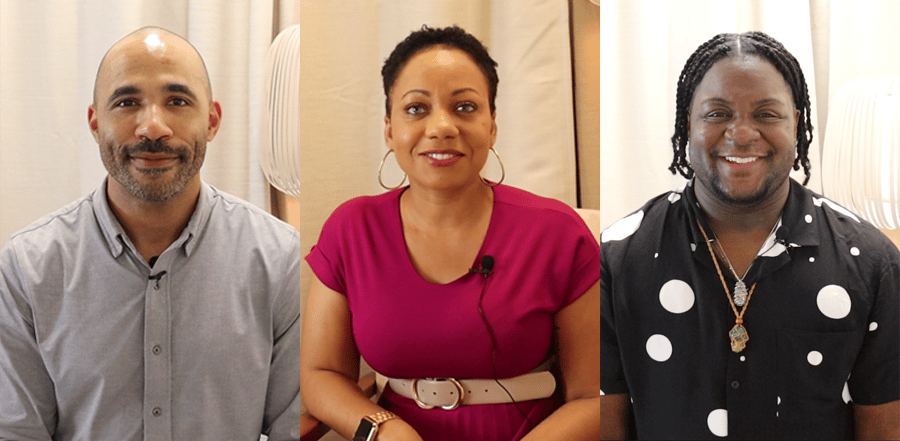Cultural humility and approaching our work through a lens of diversity, equity and inclusion (DEI) are part of our core values at Compass. We are motivated to take meaningful steps towards increasing diversity, equity, and inclusion in mental health care, and aim to build and nurture a diverse community of mental health professionals and stakeholders.
As part of our commitment to embed DEI and cultural humility into all aspects of our work, our clinical care innovation team has formed a DEI advisory group with three DEI consultants – Dr Joseph McCowan, Candace Oglesby, and Moe Brown. The advisory group have been working closely with the team at Compass on a variety of projects that are essential to our work. This group has been instrumental in the continued development of our psychological support model (the support patients receive in our clinical trials), shaping our therapist training programme, and developing cultural humility training for our therapists, trainers, and internal team.
We spoke to Moe to find out more about how the DEI advisory group are supporting our DEI initiatives, and about the actions companies can take to improve diversity in clinical trials.
Tell us about how the advisory group are working with Compass to support our DEI initiatives
I have worked alongside two other consultants, Dr. Joseph McCowan, Psy.D, and Candace Oglesby, LCPC, on DEI initiatives for the clinical care innovation team. It’s been an honor to work on Compass’s psychological support model, help develop the therapist training programme, serve as a subject matter expert, and offer workshops to enhance the department’s collective approach to cultural humility.
How have the DEI advisory group shaped Compass’s psychological support model and therapist training programme?
Our group has helped Compass examine what centering DEI and cultural humility would look like in interactions between therapists and participants and how to embed these values into the clinical model. The Compass psychological support model now includes conversations with participants asking about their culture and identity and how this has impacted their experience with their depression and their mental health in general.
Cultural humility has been included as a value for both therapists and trainers working with the Compass model, and in interviews we ask therapists for reflections on any previous experiences working with someone culturally different than themselves and the impact of this on the therapeutic relationship.
In the training programme, both for therapists and for trainers, cultural humility and DEI training is present and further training is in development. We ask therapists to get familiar with their own experiences with identity and culture. In these trainings, therapists are taught how to identify their own biases and practical steps for engaging in conversations about identity in a meaningful and authentic way both with their patients and with other therapists they may be training or mentoring in this work.
You recently ran DEI and cultural humility training with our clinical care innovation team; what did this involve?
Cultural humility is a lifelong commitment to deepening our self-awareness, actively mitigating power imbalances, and developing mutuality in our relationships, organizations, and world. The two-part workshop focused first on deepening our self-awareness as well as our understanding of our own social identities. We explored how our identities inform how we approach our work, our assumptions, and how we show up as members of Compass. Second, we explored how to utilize our strengths to serve our collective mission best. In small and large groups, we shared many of the reflections and insights that arose during the workshops. It was an excellent container for self-awareness and attunement toward this value of cultural humility. The feedback was highly positive from the workshop. Many people shared how connected they felt to their colleagues and reported that they enjoyed learning new information about the people they work on projects with daily.
What do companies and institutes need to do differently to improve diversity and inclusion within clinical trials?
This is a massive question without a perfectly concise answer. Companies must initiate approaches to diversity on all levels of the organization. Companies will have a more challenging time increasing diversity amongst participants without increasing diversity amongst researchers, employees, therapists, etc. The reason for this challenge is that to prevent the formation of homogeneous trial groups; we must also have diverse recruitment processes. The diversity of the recruitment process is influenced by everything from the location of a research site, the hiring of staff, the rapport with the people in the surrounding communities, to the investment in DEI on all levels. Ultimately, I think enlisting the help of experts in DEI to help join the internal conversations around these initiatives will also serve companies well. In all DEI efforts, we want to be proactive rather than reactive, so as much as possible; it’s essential to build DEI into the foundation of all processes. This makes it more likely that diversity will increase on all levels of the organization, especially in clinical trials.

